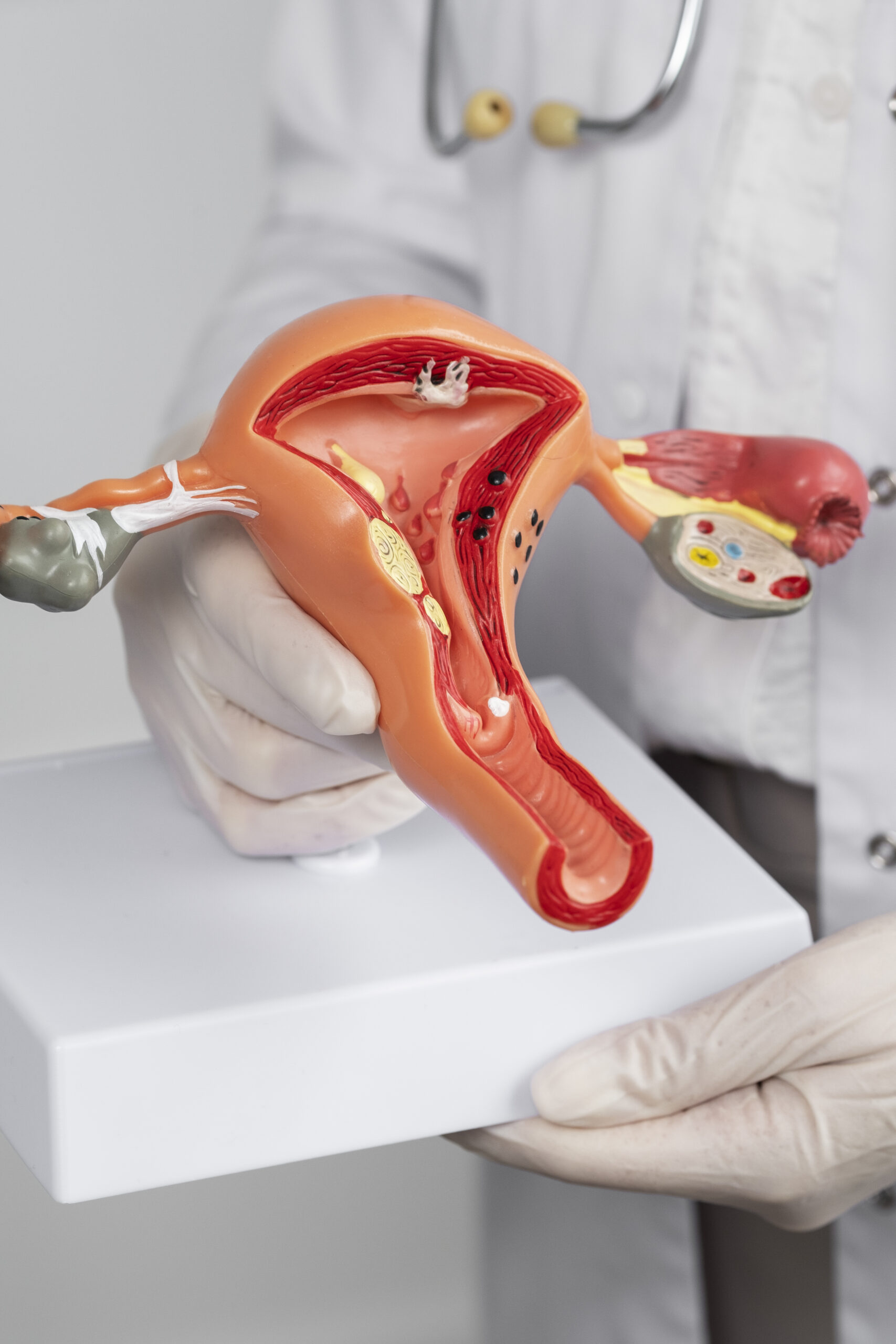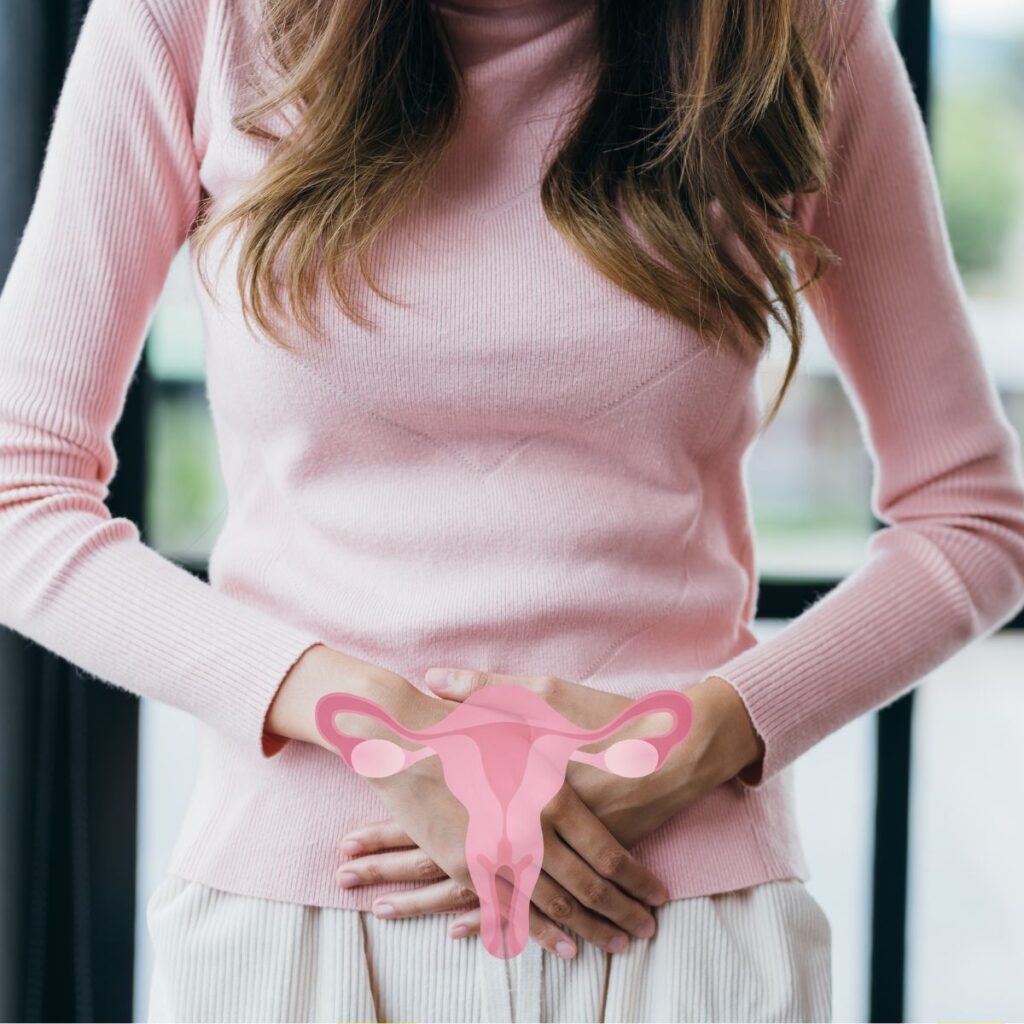PCOS Treatment in London: Nutritionist-Approved Strategies

As a dietitian, I receive many enquiries about PCOS treatment and how diet and lifestyle can help to treat the condition. In this article, we explore more about this condition and how nutrition can help you.
What is PCOS (Polycystic Ovary Syndrome)?
PCOS is a genetic condition involving excess production of LH (luteinising hormone) by the pituitary gland, leading to ovulation problems, insulin resistance in muscle and liver, and hyperinsulinemia (which means excess insulin) by the pancreas.
This hormonal disorder affects 15-20% of women of reproductive age and is one of the leading causes of female infertility due to its association with ovulatory irregularities.
Women with PCOS often have an increased risk of heart diseases such as dyslipidemia (alteration in blood fat), high blood pressure, glucose intolerance, diabetes, and consequently higher cardiac risk. Daughters of mothers with PCOS are more likely to have PCOS themselves.
Since it has an autoimmune nature, lifestyle changes aimed at reducing exposure to inflammatory factors provide a sustainable therapeutic approach to reduce immune system activation and consequently better manage PCOS.

How PCOS is diagnosed?
A woman must present at least 2 of the 3 criteria:
- High levels of male hormones from clinical tests or lab results (persistent acne after age 20, alopecia (hair loss), hirsutism (excess hair growth))
- Ovulatory dysfunction (oligo or anovulation) (fewer than 9 menstrual cycles in a year or cycles longer than 35 days)
- Polycystic ovaries (as seen on ultrasound imaging)
What causes PCOS?
There are environmental factors such as a diet high in simple carbohydrates (without fibres) and ultra-processed foods, low fibre intake, and physical inactivity, which are risk factors for developing PCOS.
Genetic factors affecting hormones include type 2 diabetes, obesity, early pubarche, hypertension, lipid disorders, sleep apnea, and low or high birth weight.
Furthermore, gut health can be a factor in the development of PCOS. Studies link gut issues to a higher risk of developing PCOS symptoms and vice versa. PCOS is associated with a decreased diversity of gut bacteria, which can trigger inflammation and increase the risk of chronic diseases.
Health consequences for women with PCOs
- Sleep disturbances
- Altered glucose metabolism
- Dyslipidemia
- Metabolic syndrome
- Infertility
- Acne, alopecia, and hirsutism
- Endometrial growth
- Psychological and behavioural disorders
Main symptoms and how do they affect a woman’s body?
The most common symptoms include menstrual irregularity or absence of menstruation, acne, hair loss, excessive body hair, weight gain with increased abdominal fat, insulin resistance, and infertility.
Treatment for PCOs with a nutritionist
A nutritionist plays a crucial role in managing PCOS, not only for weight loss but also in prescribing nutritional strategies to manage insulin resistance, oxidative stress (cell damage), sex hormone modulation due to characteristic androgens (male hormone effects), and strategies to prevent the increased risk of heart disease; works alongside medical teams, where hormonal therapy and hypoglycemic agents are often necessary. Pcos treatment has many path to be explored and every women is different, so there is no one protocol to fit all.
PCOs nutritionist tips on how to treat PCOs:
- Insulin resistance: reduce carbohydrate intake, and consume adequate quantity of fibre and protein. Including the use of 1,5g of cinnamon per day can help. Berberine and alpha-lipoic acid supplementation can be used.
- Inflammation: Anti-inflammatory and antioxidant diet based on the Mediterranean diet, inclusion of intermittent fasting to activate anti-inflammatory receptors, supplements to enhance the anti-inflammatory response, a diet of natural foods avoiding ultra-processed products, and strategies for quality sleep and stress management as melatonin is a powerful antioxidant.
Prefer to cook foods at low temperatures and high humidity for a short period. Whenever possible, use marinades in the pre-preparation stage with vinegar or lemon and spices such as turmeric, rosemary, paprika, and oregano.
Supplementation with vitamin D, if deficiency is indicated in biochemical tests, along with alpha-lipoic acid supplementation, also has positive effects in reducing inflammation
- Weight loss: low-carbohydrate and adequate-protein diet, nutritional treatment cycles aiming at fat reduction and muscle mass preservation, controlled glycemic load meals, and supplements tailored to each phase of weight loss to maximize fat reduction.
Aim to lose 5 to 10% of body weight.
Some vitamins and minerals are commonly found to be low in women with PCOS, such as vitamin D, magnesium, chromium, selenium, and inositol.
Important bioactive compounds to be included in the dietary pattern: CoQ10, quercetin, curcumin, green tea, cinnamon, probiotics, fenugreek
- Infertility: Diet to modulate insulin resistance with controlled carbohydrate and glycemic load, antioxidant diet, supplements to enhance glycemic control and antioxidant capacity, diet free of environmental pollutants and endocrine disruptors, strategies for quality sleep and stress management as melatonin is a powerful antioxidant.
- Acne, hair loss, and excess body hair growth: Including the use of peppermint tea with flaxseeds 2x a day helps to reduce testosterone levels. CoQ10 supplementation can help control the symptoms.

Through consultations with a nutritionist for PCOs, your complete health history will be combined with your dietary history to create a personalised nutritional treatment plan that meets all your individual nutritional needs. When necessary, the nutritionist can also prescribe nutritional supplements to support the success of your treatment. Especially in the case of PCOS, where controlling insulin resistance and inflammation are essential for improving the condition. Restoring the woman’s fertility and managing all the other commonly present symptoms, thereby improving her overall quality of life.
Treating PCOs with a nutritionist offers a significant advantage in supporting lifestyle changes, as they understand that habit changes are challenging and require ongoing support.
If you are looking for help with PCOs weight loss or a PCOs nutritionist to help manage the symptoms, we can help you achieve your goals with lasting results.
Get an action plan with a Free Assessment!
Get personalized insights to enhance your well-being and achieve your goals. In this 15-minute video call, we will listen to you and guide you on what you need to do.
Schedule Your Free AssessmentRecent blogs







